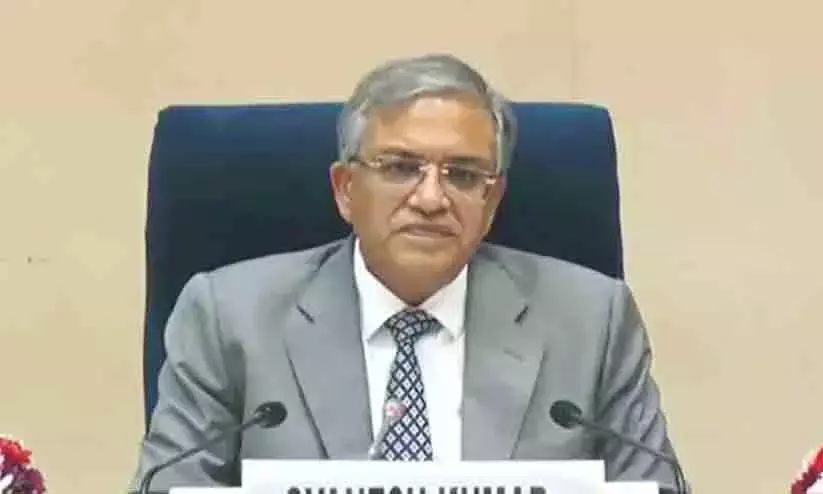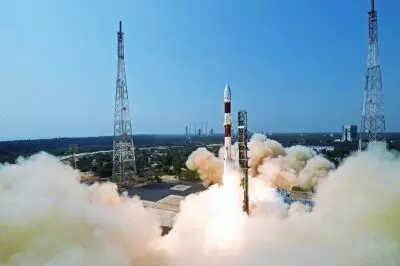
Space sector to transition from geo-satellites to constellations of satellites
text_fieldsChennai: According to a senior official of the Indian National Space Promotion and Authorisation Centre (IN-SPACe), the geo-satellite market is shifting away from low-earth orbit constellations of tiny satellites.
Prof. Rajeev Jyoti, Distinguished Scientist, Director (Technical), IN-SPACe, stated during his speech at the conference "Space Technology: The Next Business Frontier" that the space sector will transition from geo-satellites to constellations of satellites within the next ten years.
He said there are estimates that 10,000 satellites are likely to be launched in the near future.
Jyoti said the space sector must be taken forward by entrepreneurs and space businesses instead of the Indian Space Research Organisation (ISRO) being the only integrator of the entire space ecosystem.
"According to a newly-announced policy, if a space object is not functionally working, it has to be removed within five years in order to avoid space debris in place of the earlier 25 years. We have to develop technologies for active space debris removal," he said.
The conference is organised by the Indian Institute of Technology Madras (IIT Madras), the US Consulate General Chennai, and the Indian Space Association.
Drew Schufletowski, Minister Counselor for Economic, Environment, Science and Technology Affairs, US Embassy, New Delhi, said, India and the US are natural partners in the space sector and there are immense opportunities for expanding bilateral and multilateral collaboration in the space sector.
Back in 1963, the National Aeronautics and Space Administration (NASA) and ISRO worked together to launch the first Indian-sounding rocket.
Since then, the two space agencies have collaborated on numerous projects including moon exploration, Schufletowski said.
"Currently, NASA and ISRO are collaborating on one of NASA's biggest projects - the NASA-ISRO SAR Mission (NISAR), a joint Earth-observing mission, '' he said.
On September 30, 2014, NASA and ISRO signed a partnership to collaborate on and launch NISAR. The mission is targeted to launch in early 2023.
Dr Mylswamy Annadurai, Vice President, of Tamil Nadu State Council for Science and Technology and former senior official of the ISRO said: "This conclave is a focused project with the outcome being a white paper that will lead to the establishment of 'Association of Space Entrepreneurs in the Indo-Pacific' (ASEIP).
With inputs from IANS






















